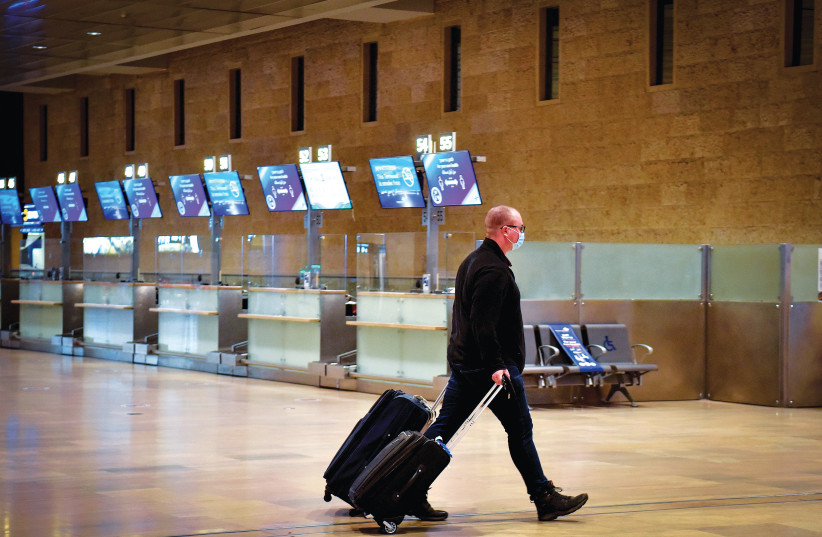Those most susceptible to COVID-19, as we know, are those with underlying, preexisting conditions. This is true for our health, and it is true for our relationships. And so it is no surprise that over the past two years, one relationship that has been most severely impacted by the global pandemic is the relationship between Israel and the Jewish community around the world.
Certainly, in the first instance, each community was forced to deal with its own immediate needs. Israel led the world in its initial response and eventually in the vaccination program, while communities in the US were among some of the worst hit as thousands lost their lives. In the ensuing panic and uncertainty, we perhaps were not able to look out for each other as we normally would.
However, Israel’s decision to close its skies – a decision made in consultation with public health experts, which I will not second-guess – forced a wedge between Israel and the Jewish community abroad. It is a wound that will remain unless it is addressed, because – as understandable as it was for Israel to need to protect its citizens – it sent a message that drew a line between Jews in the Diaspora and the Jews in Israel. A line that was previously steadfastly avoided.
During the first Gulf War, American Jews came to Israel. During the Intifada, American Jews came to Israel. During the Second Lebanon War, American Jews came to Israel. The message was clear – we are one people.
When the Pittsburgh synagogue was attacked, Israel’s now Prime Minister Naftali Bennett was on the next plane to the US. When the floods hit Oklahoma, and when the highly Jewish populated building in Miami collapsed last year – during the pandemic – Israeli crews were en route within hours, and Diaspora Minister Nachman Shai within days.

Yet suddenly, in this crisis, we were unable to show this level of unity and solidarity. Since the establishment of the state, in the aftermath of the Holocaust, Jews around the world have always looked toward Israel as a safe haven. For many, this is more than symbolic, with antisemitism and persecution a modern reality.
So when the American Jewish leadership, with the Conference of Presidents of Major American Jewish Organizations, arrives in Israel this week, along with issues such as Iran and the Palestinians, we will be speaking to Israel’s leaders about how to reinforce this relationship, and strengthen the bonds between our communities.
We will be working with Israel’s leaders to reaffirm the importance of the relationship between Israel and the Jewish community outside of its borders. We will be working with them to increase support for projects and initiatives that build understanding between the next generation of the Jewish people.
The threats against us have not lapsed because of COVID. If anything they have become more severe. The attack on the synagogue in Texas, the assault of Jewish men, women and children in New York, and countless more physical attacks are added to the growing online antisemitism, and Holocaust denial and trivialization.
BUT AS I wrote, it is easy to blame COVID. The restrictions and stress caused by the global lockdown and panic exacerbated the preexisting underlying condition, and the pressing need to ensure the unity of world Jewry.
The issues are well known, and ultimately can be solved by rebuilding the understanding between our two communities. Israelis must better understand the American Jewish experience as it is understood by the world’s largest Diaspora community. And the American Jewish community must better understand the complex realities of living in Israel – the good and the bad.
Over the years many efforts to heal these rifts have been undertaken, yet COVID drove us apart physically and interrupted this conversation. All the technological options, video calls and conferences, Zoom or otherwise, do not replace the benefits of being physically together, to sit together, to share together the daily realities we were both experiencing.
That is why the upcoming Conference of Presidents mission to Israel may be the most important in decades – both for America’s Jewish leadership, as well as for Israel’s leaders.
The writer is CEO of the Conference of Presidents of Major American Jewish Organizations leading their annual national leadership mission to Israel this week. Follow him on twitter at @Daroff.
